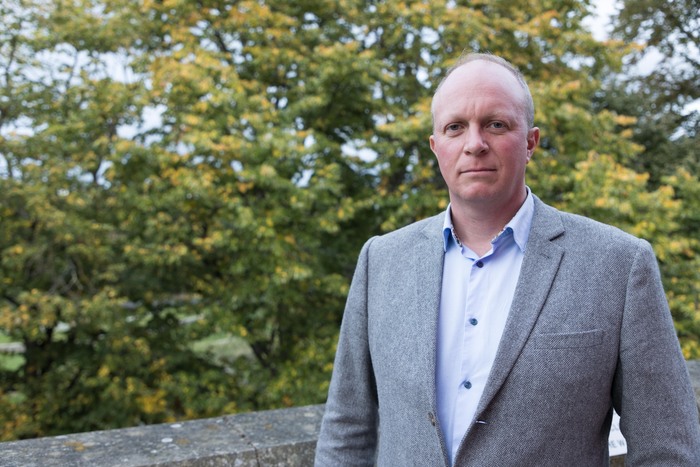Fighting climate crisis means accepting the way we power Scotland has to change

This article by Nick Sharpe, Director of Communications and Strategy at Scottish Renewables, first featured in the Press and Journal on Saturday October 7.
Following a recent letter in the Press and Journal (‘More Big Energy industrialisation of Scotland would be met by a public ‘no’’) I would like to set out some simple, undeniable truths on the development of onshore wind power in Scotland.
First, climate change is already affecting Scotland, with hotter summers, flooding and the migration and permanent loss of wildlife. Climate change is the greatest threat to the landscapes we all love, and the best way to tackle it is to reduce the carbon emissions created by producing electricity.
Second, wind power is the cheapest way of doing that on the scale we need. In the recent energy crisis, wind cut the cost of electricity while imported gas pushed it up. More renewables means cheaper power for everyone, and particularly the 35% of Scots households in fuel poverty. In fact, wind power pays money back to the Treasury over the lifetime of the contracts through which operators sell their power – the very opposite of a subsidy.
Third (and remember these are undeniable truths), onshore wind power is popular in rural areas. People living there have been repeatedly asked about their attitudes to onshore wind and the response is loud and clear: polling conducted not just by industry but by independent researchers and academia consistently shows that around two thirds of rural communities support the development of onshore wind.
The Scottish Government has some of the most ambitious net-zero targets in the world and is aiming for Scotland to be 75% of the way towards net-zero by 2030. The targets which are in place to reduce Scotland’s carbon emissions and mitigate the impacts of climate change have cross-party support and have been agreed by elected officials in the Scottish Parliament.
In order to achieve them, we will need at least 20GW of onshore wind and 11GW of offshore wind capacity in place by the start of the next decade.
Scotland is in a great position to help the UK tackle climate change, and in the last fortnight the renewable energy industry and the Scottish Government signed an Onshore Wind Sector Deal - a landmark agreement that will speed up our ambitions for onshore wind.
Not only will it help Scotland hit its net-zero targets, the agreement also ensures that Scotland’s natural heritage will be protected as we deliver onshore wind farms quickly, sustainably and to the benefit of local communities.
Finally in this list of truths: a net-zero carbon future which delivers cheap, reliable, clean power, jobs, investment and a future for the next generation will look different.
The current electricity network was designed for fossil fuels almost a century ago, so as well as low-carbon generation we need more pylons, power lines and substations to transport the clean power generated from renewables like wind and solar and cut energy bills for everyone in society.
With electricity demand set to double in the next 25 years, everyone in Great Britain needs these upgrades if we’re to sustain our lifestyles and grow our economy.
We know that many groups and individuals who object to the construction of new projects such as onshore wind farms and pylons do so because they do not like the way they look, and often claim to represent the views of entire communities.
The polling tells a different story.
Scots (and young Scots in particular) see the need to act on climate change and understand that changes need to be made if we’re to do so – as well as delivering jobs and economic opportunities which otherwise may not have existed. That includes skills and training which can secure the future of local businesses and provide sustainable jobs to keep young people in rural areas.
Saying no to the once-in-a-lifetime opportunity offered by the expansion of renewable energy and the electricity grid which supports it holds back economic growth in the north of Scotland, slows our chance of tackling climate change for future generations and will mean burning more expensive gas which raises energy bills for everyone.
Nick Sharpe, Director of Communications and Strategy at Scottish Renewables